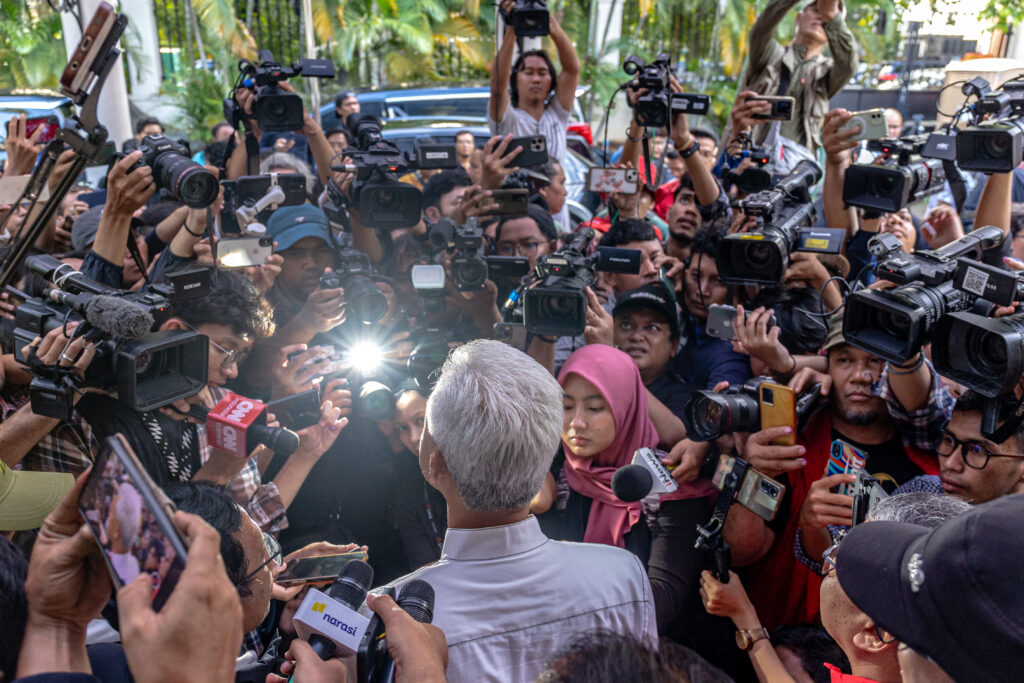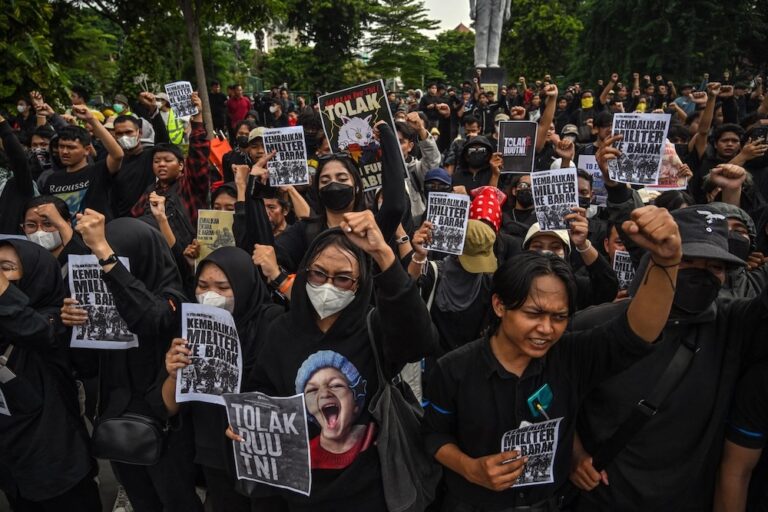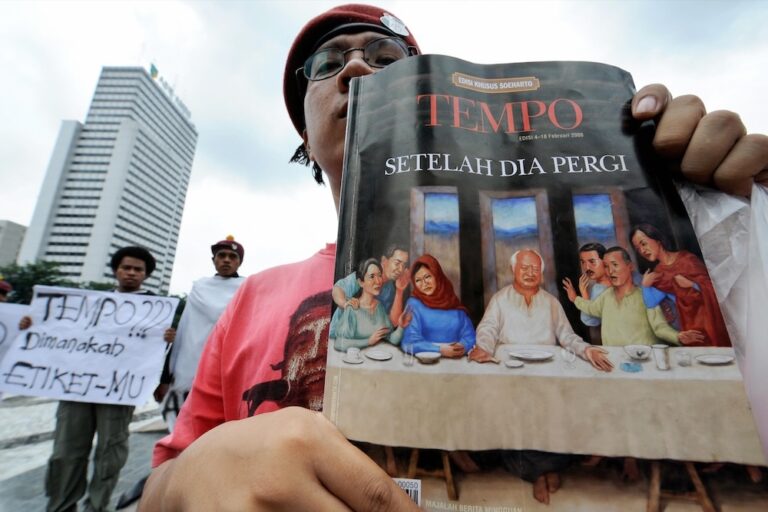Most cases of violence against journalists are not seriously investigated, which reinforces impunity and eventually leads to new violence.
This statement was originally published on aji.or.id on 13 February 2024.
Throughout 2023, there were 89 cases of attacks against Indonesian journalists and media documented by the Alliance of Independent Journalists (AJI). This number is the highest in 10 years or since 2014, a danger alarm for the future of press freedom in Indonesia.
These conditions will provide greater challenges for journalists and independent media to oversee the national elections on February 14, 2024, which are marked by nepotism, political dynasty, misuse of state resources to favor certain candidates, and increasing intimidation of freedom of expression.
Physical, terror, digital, criminalization, and sexual violence were among the types of attacks that targeted 83 individual journalists, 5 groups of journalists, and 15 media outlets. The highest violence occurred against journalists and media reporting on three groups of issues: accountability and corruption with 33 cases; social issues and crime with 25 cases; and 14 cases of attacks related to environmental issues and agrarian conflict.
The report reveals that 36 cases of violence were perpetrated by state actors, 29 cases were perpetrated by non-state actors, and 24 cases were not identified. There were also five sources who were targeted with criminalization, using the ITE Law, Criminal Code and civil lawsuits.

Of all 89 cases, only two perpetrators have been found guilty in court. Most cases of violence against journalists are not seriously investigated, which reinforces impunity and eventually leads to new violence.

Challenges for Media Sustainability and Independent Journalists
In addition to the high number of attacks, the mainstream media in Indonesia is still controlled by elite groups from political parties and ruling power. This situation is a serious obstacle for the media to be able to operate independently as it can be intervened by its owners for political interests in the 2024 election period.
The media industry continues to be shaken by digital disruption, which has led to the demise of two print media companies and layoffs at nine television and online media companies. The wave of layoffs of media workers that are still occurring during 2023 is a signal of how the future of the Indonesian journalistic profession is in an uncertain situation. In fact, it tends to be bleak.
As Jokowi and the Indonesian Parliament reauthorized the Job Creation Law in early 2023, the fate of journalists and media workers has become increasingly vulnerable. This regulation weakens the protection of labor rights, including media workers and journalists.
Read more about the Indonesian press freedom situation in 2023:
Outlook 2024
The national elections, scheduled for February 14, 2024, will be followed by local elections in over 500 regions in November 2024. In each election, the role of independent and critical media is needed more than ever. The operation of independent media and journalists can only occur in a healthy democratic environment.
However, AJI estimates that the state of press freedom could worsen if there is no serious effort by the state to protect the media and independent journalists during the 2024 elections. Repression may continue to occur because impunity is still strong, there is a trend of intimidation of civil society for criticizing the quality of elections, and an alleged lack of neutrality of the security forces.
Furthermore, President Jokowi signed the implementation of the second revision of the Electronic Information and Transaction Law (UU ITE) in early January 2024. The regulation contains several problematic articles regarding criminal defamation, hate speech, and fake information, and still gives the government considerable authority to control the digital space without an independent mechanism.
In addition, the Personal Data Protection Law will take effect in October 2024. The law does not yet contain an exception for processing personal data for journalistic purposes. Exceptions for journalistic purposes are very important to avoid the practice of limiting or censoring the news to cover up crimes under the pretext of violating the privacy rights of certain people. Thus, if the government does not accommodate journalistic interests in the implementation of the PDP Law, then the regulation could potentially support press freedom.
Therefore, AJI Indonesia provides a number of key recommendations:
● The government and the House of Representatives must abide by the Press Law, which has guaranteed legal protection for journalists in carrying out their profession. Therefore, various regulations that threaten the work of journalists and media companies must be removed.
● The government, the Press Council, and the press community have to establish a National Mechanism for the Protection of Journalists. The protection mechanism consists of at least four pillars of journalist security, including prevention, protection, prosecution, and promotion.
● The Press Council must ensure the independence of journalists and media companies amid media ownership by politicians or political party leaders.
● Companies are obliged to ensure the safety of journalists and media workers, from news-related violence to economic security.
● Law enforcement must investigate all cases of attacks against journalists and media, independently and impartially.
● Journalists and media workers need to join labor unions, both within the company and across companies, to ensure normative rights as workers are fulfilled and increase professionalism.



